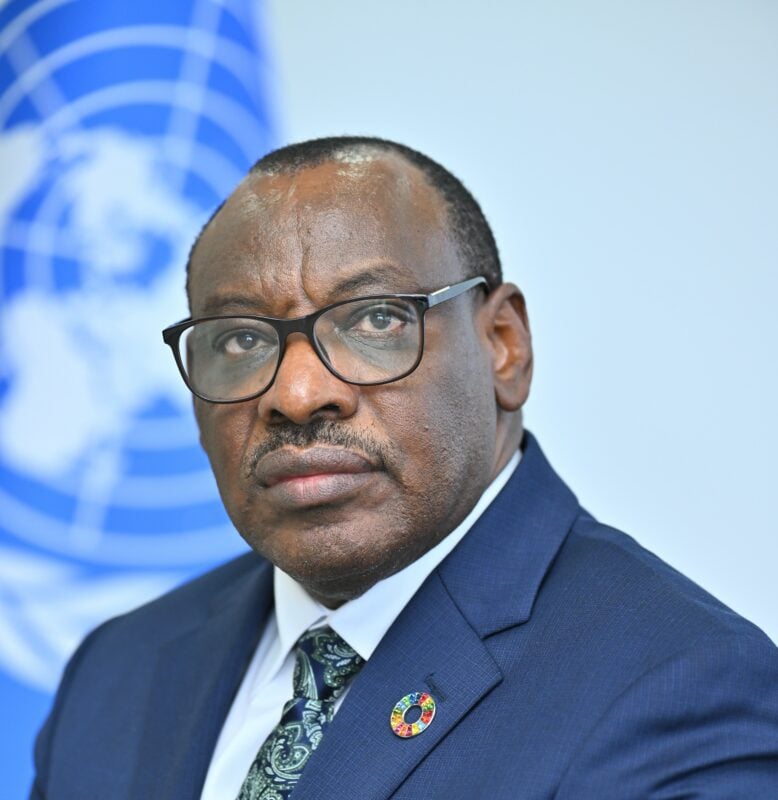
It is no exaggeration that Africa stands at a pivotal moment in our continent’s development journey—one full of promise, amidst tremendous challenges, particularly in the face of recent economic setbacks and the current global tariff wars. This convergence of challenges has left economic growth lagging behind pre-pandemic levels and far from what is necessary to meet the Sustainable Development Goals (SDGs), in 2030. The intensity of the headwinds can only be overcome if Africa’s leaders seize this once-in-a-lifetime opportunity to accelerate the implementation of the Agreement establishing the African Continental Free Trade Area – AfCFTA. If we do this right, the resulting tailwinds will propel the Continent forward faster and stronger.
I come from a country that rose from the ashes of the Genocide against the Tutsi. As a people, Rwandans have long been witnesses to the challenges of globalisation and the decline of Overseas Development Assistance. Indeed, ODA has seen a dramatic decline since the post-covid period. What my country taught me is that rising from the ashes is about redefining narratives. As a continent, despite the current headwinds, we have what it takes to engender resilience. And, through dogged determination, we can overcome the most pressing confluence of challenges of our time.
The 2025 edition of the Economic Report on Africa (ERA), titled: “Advancing the Implementation of the Agreement Establishing the African Continental Free Trade Area (AfCFTA): Proposing Transformative Strategic Actions,” pays close attention to the impact of our limited fiscal space, geopolitical tensions, supply chain disruptions, and elevated food and energy prices on Africa growth prospects. ERA 2025 provides a roadmap for sustainable growth and strategic integration into the global economy.
While our expectations as analysts are focused on the Continent’s long-term ability to increase its GDP by $1.4 trillion and intra-African trade by $3 trillion (or +40%) in cumulative between 2021 and 2045In the short-term, the current global tariff wars should signal that the time has come for fast-tracking the AfCFTA. To this end, through concerted action, we can forestall the threat being faced by African industries by rising international tariffs, such as the automotive and fertilizer sectors, and accelerate their shift toward alternative regional markets.
We must act decisively and purposefully!
First, commitment to the full implementation of the AfCFTA is a necessity for fostering economic resilience and driving growth. By reducing tariffs, eliminating non-tariff barriers, and harmonizing trade policies, we can create a more conducive environment for intra-African trade. Quick ratification of the protocols on free movement of people, goods and services, as well as those on intellectual property rights, competition and investment would certainly help accelerate the achievement of this goal!
We must also invest in robust regional value chains, particularly in key sectors like agro-processing, automotive, pharmaceuticals, health, tourism, and renewable energy. Targeted industrial policies and support for small and medium-scale enterprises (SMEs) will be critical in building productive capacity and driving innovation. “Made in Africa” will reduce our dependence on the rest of the world. Afroshoring support intra-Africa trade!
Moreover, integrating climate policies into the AfCFTA framework is essential. Our transition to renewable energy could require significant investment—an estimated $22.4 billion between 2025 and 2040, as the sole result of AfCFTA implementation. By focusing on solar and wind power, among other renewable sources of energy, we can not only meet our energy needs but also position Africa as a leader in the green economy.
The need for efficiency cannot be overstated. Streamlining customs procedures through the adoption of digital technologies, such as blockchain and electronic data processing, will reduce trade costs and improve efficiency across the continent. It will also reduce market information asymmetry, enabling trade inclusion. Additionally, implementing gender-sensitive policies under the AfCFTA will empower women, promoting their access to finance, education, and digital skills—essential components for inclusive growth.
Lastly, as we confront the challenges of rapid urbanization, we must invest in sustainable urban development. Affordable housing, clean water, and sanitation are vital for managing urban growth and harnessing the demographic dividend. By promoting job creation, particularly in the services and informal sectors, we can significantly reduce youth unemployment and pave the way for a more prosperous future.
The path we choose today at a time of great uncertainty will shape the lives of future generations. We can transform the current global tariff crisis into opportunities to strengthen trade amongst ourselves and participate in the global economy on terms that benefit the continent.

